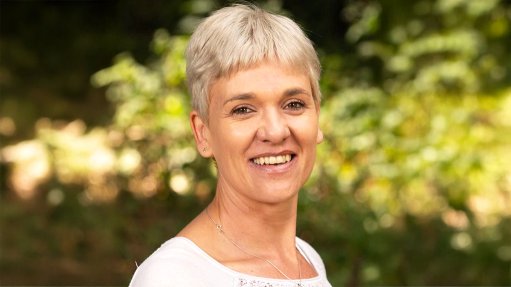Firm starts moving to fully electric locomotives
Australia’s largest rail freight operator, ASX-listed company Aurizon, has been in contact with a Caterpillar company in rail technology solutions, Progress Rail, to undertake an innovative project.
Progress Rail will be retrofitting one of Aurizon’s existing 4000-class diesel locomotives. Aurizon has more than 120 of the 4000-class locomotives in its national fleet, meaning a successful battery conversion could provide a much faster, less expensive decarbonisation pathway, using fully recycled assets.
Consequently, the project has the opportunity to benefit Australia in terms of reducing transport-related emissions and aiding the transformation of Australia’s freight supply chain.
This will be the first battery-powered freight unit to be constructed in Australia, allowing the potential future use of totally renewable energy sources for freight hauls, with the batteries also capturing regenerative energy created when trains brake or travel downhill.
A prototype is being built at Progress Rail’s Redbank facility in south-east Queensland. The unit is designed as a heavy-haul freight locomotive, capable of working at locations across Aurizon’s national footprint and suitable for Australia’s harsh operating conditions.
Aurizon MD and CEO Andrew Harding said the project sits at the heart of Aurizon’s decarbonisation initiatives with a target of achieving net-zero operational emissions by 2050.
“Modern freight locomotives using renewable-energy sources have the potential to transform the nation’s freight supply chains for customers, communities and the Australian economy,” Harding said.
“Not only will this dramatically reduce the carbon footprint for our freight transport needs, and the community in general, but it will also provide a significant competitive advantage for Australian industries and exporters in global markets.”
Harding explained that Australia is ideally positioned to supply the world with great reserves of future-facing commodities that will fuel and feed a decarbonising world for decades to come, including commodities such as copper, nickel, rare earths, grain and phosphate.
“Delivering high-quality Australian products for export across zero or low-carbon supply chains will be a win-win for Australian companies and Australian communities,” Harding said.
Progress Rail senior VP Colin Kerelchuk commented: “We are excited to support Aurizon in achieving their carbon reduction goals. This project leverages our worldwide capabilities, while heavily relying on our expert workforce in Australia. We will deliver this EMD Joule out of our Redbank, Queensland facility, where we have recently secured a long-term lease extension to continue operations through 2034.”
Kerelchuk said that, with Aurizon’s presence in Queensland since 2015, Aurizon is well positioned to deliver broad technology and fleetwide modernisations to improve its customers’ operational and emissions efficiencies.
Aurizon has also commissioned leading Australian universities, namely the University of Queensland and Central Queensland University, to undertake sophisticated modelling work and research on emerging battery technology, network infrastructure and charging facilities required to provide renewable electricity to the locomotive batteries.
Locomotives typically have an asset life of 20 to 30 years, so replacing the diesel engine with batteries and recycling the remainder of the locomotive is less expensive, more environmentally sound and based on circular economy principles.
The design phase and preliminary work on the retrofit has commenced at Redbank. Construction of the locomotive is expected to be complete by early 2025, with on-track trials starting in the first half of 2025. The charging infrastructure on the selected Australian rail corridor will be completed concurrently.
Article Enquiry
Email Article
Save Article
Feedback
To advertise email advertising@creamermedia.co.za or click here
Comments
Announcements
What's On
Subscribe to improve your user experience...
Option 1 (equivalent of R125 a month):
Receive a weekly copy of Creamer Media's Engineering News & Mining Weekly magazine
(print copy for those in South Africa and e-magazine for those outside of South Africa)
Receive daily email newsletters
Access to full search results
Access archive of magazine back copies
Access to Projects in Progress
Access to ONE Research Report of your choice in PDF format
Option 2 (equivalent of R375 a month):
All benefits from Option 1
PLUS
Access to Creamer Media's Research Channel Africa for ALL Research Reports, in PDF format, on various industrial and mining sectors
including Electricity; Water; Energy Transition; Hydrogen; Roads, Rail and Ports; Coal; Gold; Platinum; Battery Metals; etc.
Already a subscriber?
Forgotten your password?
Receive weekly copy of Creamer Media's Engineering News & Mining Weekly magazine (print copy for those in South Africa and e-magazine for those outside of South Africa)
➕
Recieve daily email newsletters
➕
Access to full search results
➕
Access archive of magazine back copies
➕
Access to Projects in Progress
➕
Access to ONE Research Report of your choice in PDF format
RESEARCH CHANNEL AFRICA
R4500 (equivalent of R375 a month)
SUBSCRIBEAll benefits from Option 1
➕
Access to Creamer Media's Research Channel Africa for ALL Research Reports on various industrial and mining sectors, in PDF format, including on:
Electricity
➕
Water
➕
Energy Transition
➕
Hydrogen
➕
Roads, Rail and Ports
➕
Coal
➕
Gold
➕
Platinum
➕
Battery Metals
➕
etc.
Receive all benefits from Option 1 or Option 2 delivered to numerous people at your company
➕
Multiple User names and Passwords for simultaneous log-ins
➕
Intranet integration access to all in your organisation

















